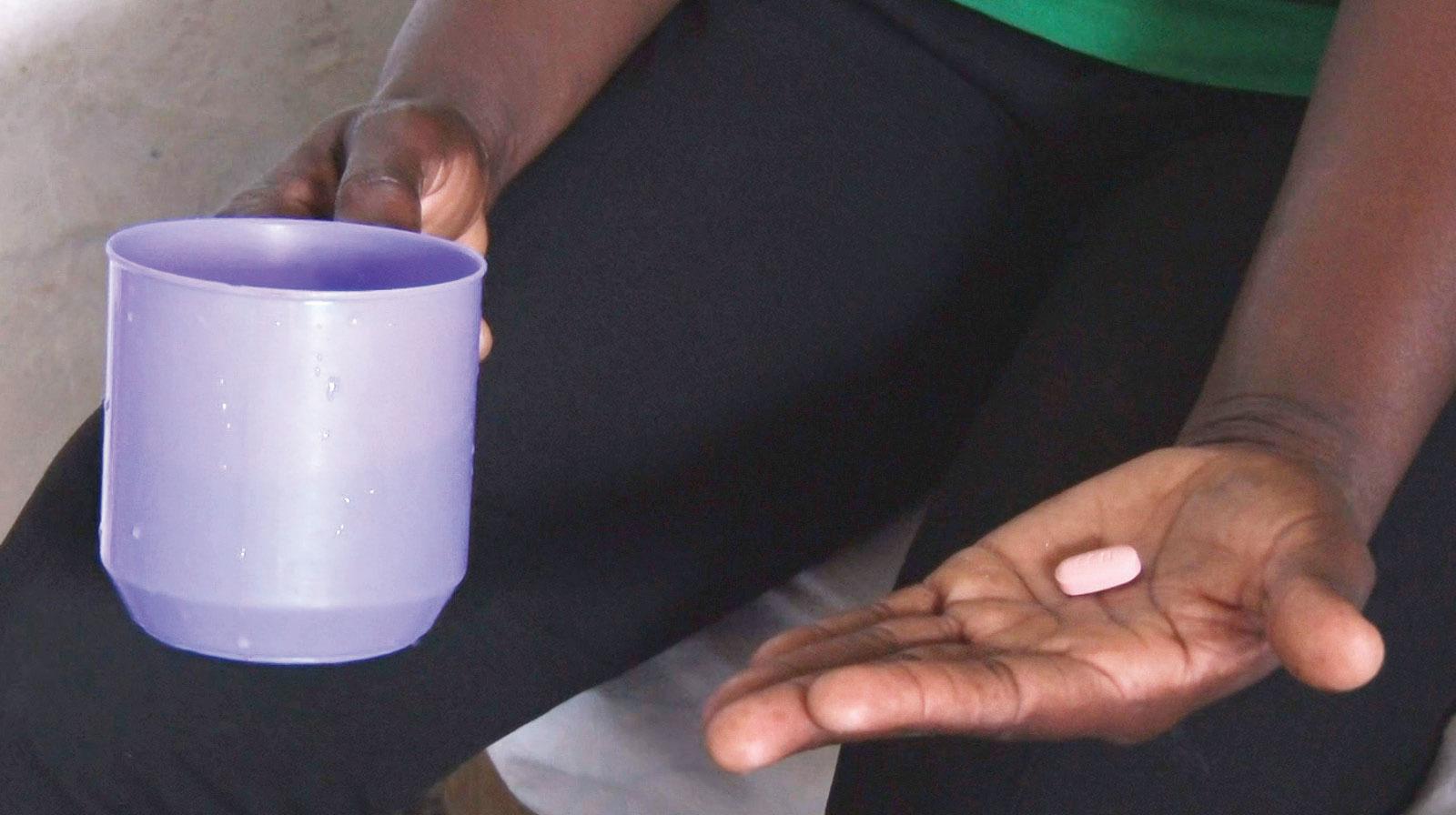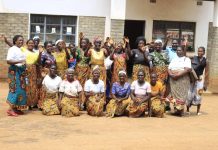Africa-Press – Malawi. There is no food left in Judith Lupiya’s shaky soot-stained kitchen, whose cold fireplace backs up her claim that she has not eaten anything since morning.
It is around 2:30 in the afternoon. There is no standing stalk of maize with a cob in the semi-arid brown fields around her home. The last pail of flour she brought home after working in a neighbour’s garden is now empty and she has no clue about where the next meal will come from.
“I don’t know where I will find money with which to buy food for my family. In my condition, staying for a day without food is even unsafe,” Lupiya, from Chendausiku Village about seven kilometres northwest of Balaka Town, says.
Sitting on a darkish earth veranda of her small raw-brick kitchen, she casts her pale eyes to the sky as if expecting something to drop into bowls lying on the open patch in front of her.
Lupiya took her medication in the morning and is already feeling weak at the knees. She has had such experiences before after taking the drugs on an empty stomach.
“It is a difficult choice. Sometimes, due to the problems that come with taking the medication without eating anything, I choose to briefly default,” she admits.
For those on treatment to live longer, healthier lives, they must regularly take their medication, says humanitarian medical non-governmental organisation Médecins Sans Frontières (MSF). The World Health Organisation (WHO) states that at the end of 2021, 28.7 million people were receiving antiretroviral therapy (ART) worldwide.
The United Nations health agency further warns that HIV drug resistance compromise the effectiveness of antiretroviral drugs in reducing HIV incidence and HIV-associated morbidity and mortality.
“To stop HIV drug resistance, all global stakeholders should promote the availability of optimal medicines to treat HIV infections, support retention in care and optimal adherence to treatment, increase access and use of viral load testing to know if HIV treatment is working and rapidly switch regimens in cases of confirmed treatment failure,” WHO says.
It adds that over the past decade, the world has witnessed an unprecedented increase in the use of ART, which has saved the lives of tens of millions of people living with the virus.
“At the end of 2021, 28.7 million people were receiving ART globally, out of an estimated 38.4 million people living with HIV,” the UN agency says.
In Malawi, approximately 946,000 adults are living with HIV. At least 84 percent of these are on treatment and Lupiya is one of them. She is worried that her protection could be compromised by the famine that has swept through her village.
“I have been taking my medication for six years now. The biggest challenge has come this year. Due to a dry spell that hit our area, I did not harvest enough,” Lupiya says.
Several people on treatment in her location are at risk of defaulting on treatment due to hunger. They say the drugs make them weak if they take them on empty stomachs.
Medical researchers Jennifer Pellowski and six others, writing in the United States’ National Library of Medicine (NLM), found that among people living with HIV, food insecurity is particularly detrimental “because it can lead to malnutrition, which exacerbates the adverse health outcomes of immune suppression resulting from HIV infection.”
And MSF stresses that more efforts are needed to ensure everyone living with the virus receives the treatment they need. Frank Paulo, from Lupiya’s village, wishes the goal got wholly realised.
“But in rural locations such as ours, it is difficult to faithfully take the medication, especially when hunger hits,” Paulo says. Scientists have recorded before that people on treatment report that taking the drugs without sufficient food exacerbated medication side effects.
“…these reported side effects included headaches, stomach pain, dizziness, shivers or tremors, loss of energy, fainting, sweating and rapid heartbeat,” reads another article published in NLM.
Research participants, just like Paulo, further reported that after taking their medication on empty stomachs, they felt like they had ulcers. Others said every time they took their medication without eating anything, they started shivering and sweating and could pass out.
Paulo says even when he has food in his house, it is usually deficient in nutritional value such that he feels some side effects after taking his medication.
“We try our best to follow doctors’ prescriptions in terms of taking our medication but sometimes, without proper food, the medication falls short,” he says.
For the past decade, HIV and Aids has posed a big challenge to households in Lupiya’s village, where eight in 10 people depend on small-scale farming. Those on treatment only just optimally work in their gardens and end up harvesting too little to take them beyond the lean period.
“The little maize sold in markets is too expensive for most of the people on treatment. They have no sustainable means of earning money,” Robert Chirambo, an activist who works with people like Lupiya and Paulo, explains.
On the other hand, Chirambo admires the tenacity of people like Lupiya and Paulo, who disclosed their status and, therefore, protect those they may become intimate with. His desire is to see these people accessing food rich in all necessary nutrients so that the medication works in the best way.
“They engage in some activities to earn a little something, but the money is not enough. For instance, they do process peanut butter but the peanut itself, as a raw material, is expensive,” Chirambo says.
He is worried that if those on treatment cannot access enough food, efforts to diminish the status of the virus as a public health threat may continue being dampened.
Still, at least, they come together in small groups to share hope, frustrations and a future. It is a huge therapy that keeps them going even in times of uncertainty, Chirambo says.
For More News And Analysis About Malawi Follow Africa-Press






